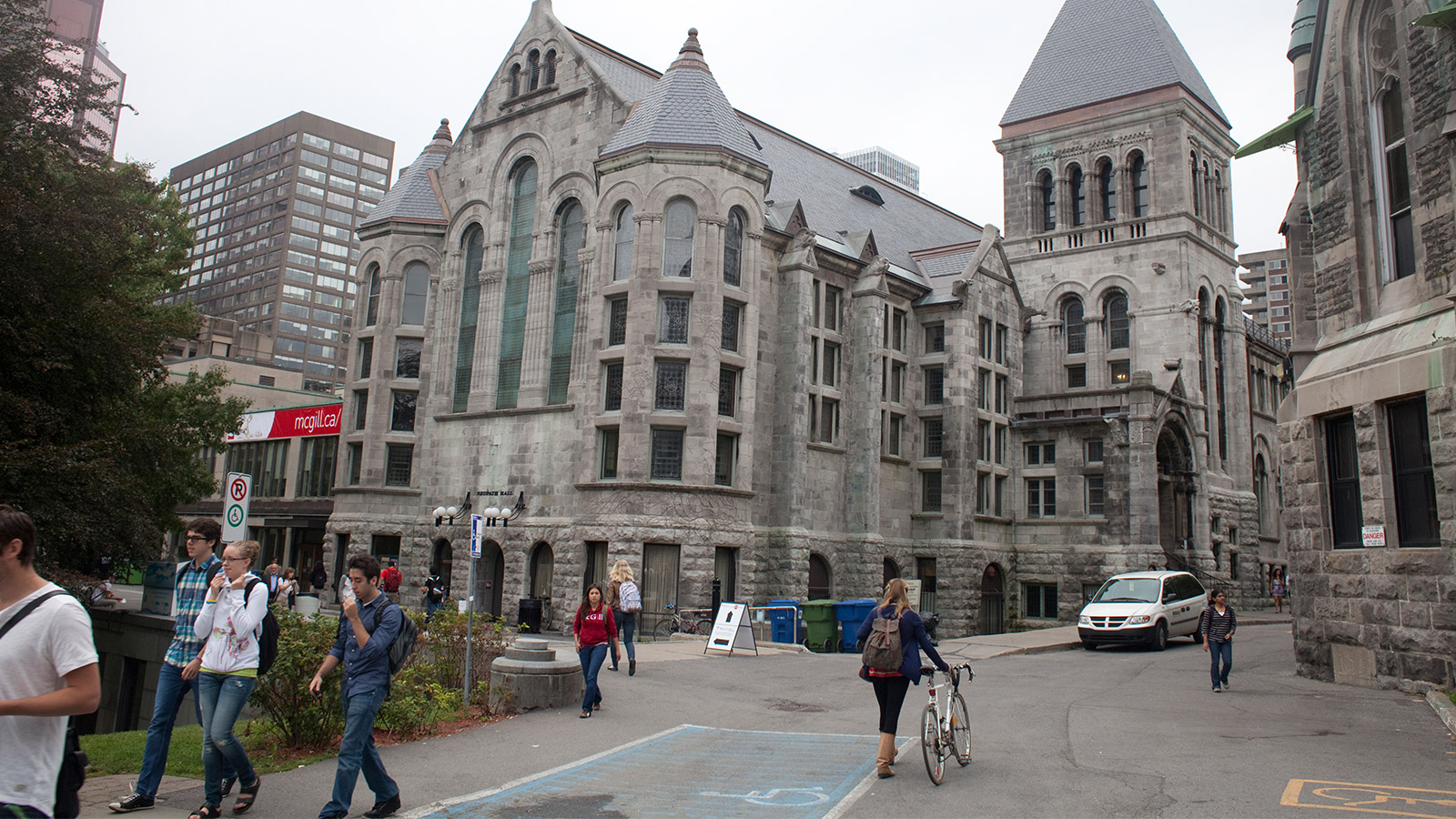Changes to McGill faculty of medicine admissions pay off
Quebec’s francophone universities should take a page from the controversial changes
McGill University (Roger LeMoyne for Maclean’s)
Share

Pity the would-be McGill University medical student.
History and tradition dictate that this person is probably white, well-moneyed and English-speaking. As such, he has had the run of McGill’s medical school for the quasi-entirety of the faculty’s existence. It is the stuff of cliché: One of the most exclusive degrees from one of the country’s best institutions has been the chattel of fathers and sons of rich anglophones, to the exclusion of nearly everyone else. It took a few brave female souls and nearly a century to chip away enough of that hardened privilege so as to allow women entrance into this rarefied club.
Certainly, clichés die hard and loud, as the administration of McGill’s faculty of medicine is once again finding out. In 2009, it made the very sensible decision to at least attempt to recruit from outside this very shallow pool. The faculty’s admissions office changed its name to the admittedly rose-coloured “Admissions, Equity and Diversity of the Faculty of Medicine.” Under its “Towards Health” program, medical students would spread out into the high schools in Montreal’s less fortunate postal codes to promote the medical school. Separately, the faculty dropped the Medical College Admission Test (MCAT) from its admissions requirement for an equally sensible reason: The test isn’t offered in French, which is both an oddity and a obstacle in a province where 80 per cent of the population is francophone.
The program seeks only to coax those who would otherwise not consider medicine into the field, and to remove linguistic barriers from the faculty’s admissions process. As a recent Association of Faculties of Medicine of Canada study shows, it couldn’t have come too soon. In 2009, 53 per cent of Canadian medical students came from households earning more than $100,000 a year, whereas only 17 per cent of Canadian families fall within this tax bracket.
Only 11 per cent of medical students were from families earning less than $40,000 a year, even though these families represent 44 per cent of the population. The cloistered nature of Canadian medical schools is perhaps best illustrated by a 2002 Canadian Medical Association Journal study, which showed that roughly 16 per cent of medical students have at least one physician parent—a 75-fold greater representation than population share. These figures denote a reigning truism in post-secondary education: Money begets money, privilege begets privilege.
Nevertheless, the reaction was equal parts swift and outraged. “The English community that has supported McGill for 150 years is being stabbed in the back,” Debra Finestone, a McGill professor and emergency room physician whose daughter was recently denied a spot in the school, told the Montreal Gazette. Dr. Finestone provided the most quotable bit of pith-and-vinegar emanating from what the Gazette quaintly called “McGill’s traditional stakeholders,” and epitomized this group’s overriding sense of entitlement. We supported you, so you owe us something—like a spot in your school for my kid. It’s interesting that much of the noise seems to come from physicians associated with McGill whose progeny was similarly rejected. And you thought universities were meant to be a respite from this sort of tribalism.
Thankfully, alumni support and fundraising hasn’t suffered, according to McGill’s office of alumni relations—though some think it should. “Maybe it takes feeling the pinch in its pocketbook for McGill to take notice of the injustice felt by the anglophone community,” wrote one Stella Marshall in a letter to the Gazette. “By seeking diversity as a major criterion guiding admission to its medical school, McGill University seems to have made it virtually impossible for the brightest and most talented anglophone students, seeking a career in medicine, to enter.” (Just for fun, replace “anglophone” with “white” to get a good idea of the ugly implications of this phrase.)
Diversity is a fraught subject, in part because the word itself is a politically correct catch-all that can mean practically anything. In McGill’s case, though, “diversity” is probably best defined by what it doesn’t mean. This isn’t an affirmative action program. There are no racial or linguistic quotas whatsoever. GPA remains as important as ever—more important, actually, as the average new-student GPA has risen from 3.80 to 3.84 since 2010, according to McGill’s own data. If anything, the initiative removes a longstanding de facto affirmation-action program, in place for much of the faculty’s history, in which only rich English types need apply.
What has changed is competition. Thanks to McGill’s initiatives, the number of successful French-only applicants is up by two percentage points, to seven per cent, between 2009 and 2013. The number of bilingual medical students is up six percentage points, to 66 per cent, during the same time period. Meanwhile, the percentage of students from families earning more than $100,000 decreased from 64 to 52 per cent between 2010 and 2013. (All statistics come from the faculty’s admissions office.) Slowly, steadily, McGill’s medical school is starting to resemble the population beyond its walls.
Should Quebec’s francophone universities do the same for English students as McGill has done for French? Yes. Will they? Probably not. But this shouldn’t preclude the university from doing the right thing—or from ignoring those who pine for a continuation of a rich, white, English status quo.